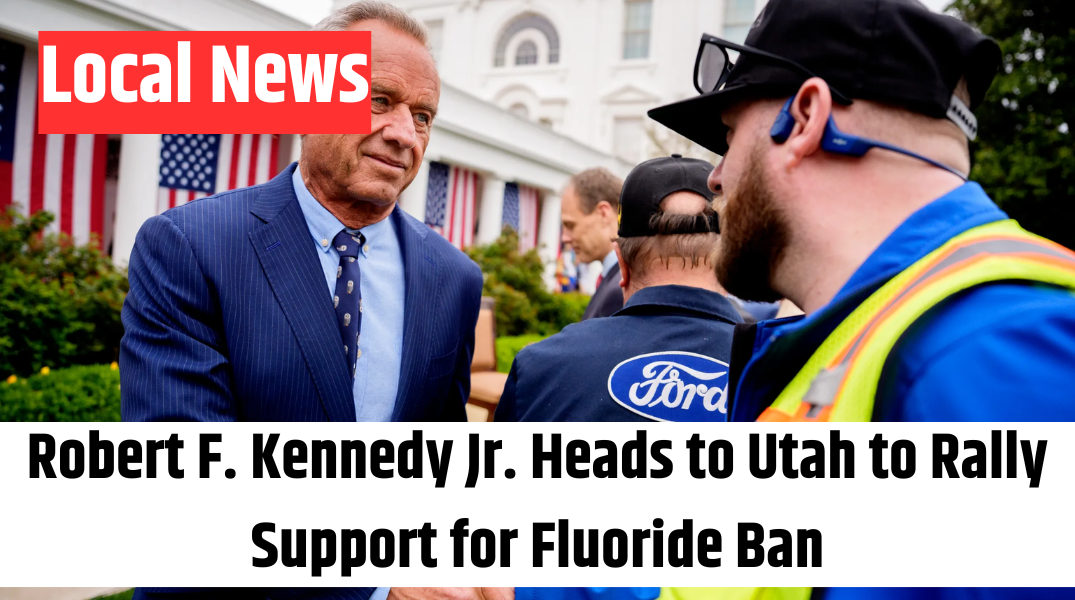
SALT LAKE CITY, Utah — U.S. Health and Human Services Secretary Robert F. Kennedy Jr. is scheduled to make a stop in Salt Lake City on Monday as part of a multi-state tour highlighting new health-focused legislation enacted in the Southwest.
Kennedy will appear alongside Lee Zeldin, administrator of the U.S. Environmental Protection Agency, to address recent measures passed by the Utah Legislature under the “Make America Healthy Again” (MAHA) initiative — a campaign aligned with President Trump’s health priorities.
According to a press release from the Department of Health and Human Services (HHS), Kennedy’s visit will include meetings with local lawmakers, tribal leaders, health professionals, and education advocates. The tour aims to showcase efforts to improve nutrition and wellness through state-level reforms.
Among the new policies gaining national attention:
-
H.B. 402: Prohibits ultra-processed foods and artificial dyes in Utah’s public schools.
-
H.B. 403: Limits the use of Supplemental Nutrition Assistance Program (SNAP) funds for purchasing items like candy and soda.
-
H.B. 81 (Fluoride Amendments): Makes Utah the first state in the country to ban the fluoridation of public drinking water.
Governor Spencer Cox signed H.B. 81 into law on March 28. The bill mandates that all public water systems in Utah must cease adding fluoride by May 7. While the measure permits pharmacists to prescribe fluoride tablets to individuals who still want it, the law represents a major departure from longstanding public health practices.
Roughly 1.6 million Utahns currently receive fluoridated water through various county and municipal systems. The CDC has long endorsed community water fluoridation, recommending 0.7 milligrams of fluoride per liter of water to effectively reduce tooth decay.
The fluoride ban has sparked a mix of support and criticism from across the political aisle. Lawmakers from both parties debated the bill, which drew national headlines for Utah’s unprecedented decision to eliminate fluoride from its water statewide.
While some residents may expect lower utility bills, water providers say the financial impact will be negligible. Companies like Water Pro INC estimate customers may save under 90 cents per month. Others noted that short-term costs could rise as systems decommission equipment and deplete existing fluoride supplies.
The Utah Dental Association and local health professionals have raised serious concerns about the consequences of the ban. They argue that eliminating fluoride from the water supply will disproportionately harm children and low-income families who rely on public health protections.
“It’s the kids in underserved communities who are going to feel this the most,” said Dr. Mark Fullner, a Utah County dentist. “They may not have access to fluoride supplements or regular dental care. This puts added pressure on parents and caregivers to make up for something that’s been safely handled at the community level for decades.”
In a formal response, the Utah Dental Association criticized state leaders for what it sees as a step backward in protecting public health.
“We are disappointed in the Utah Legislature and Governor for failing to prioritize the health of our children and vulnerable populations,” the UDA stated. “Community water fluoridation has been proven time and again to be a safe, effective, and affordable way to combat tooth decay.”
When contacted for additional remarks, the governor’s office declined to comment further .




